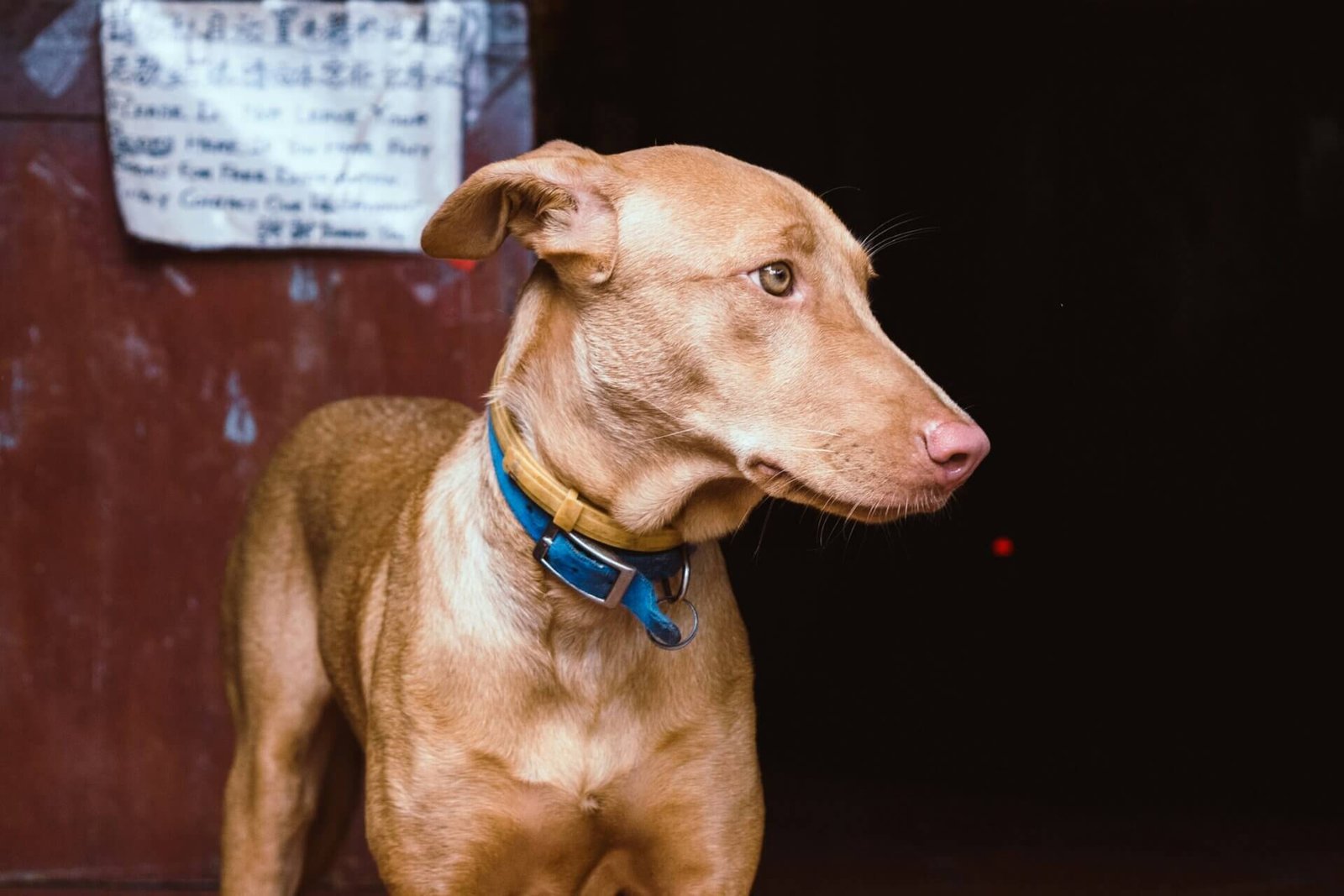Introduction to Security Dogs
The concept of security dogs is deeply rooted in history, with their use for protection dating back thousands of years. These loyal and vigilant animals have long been esteemed as guardians, serving to protect homes, livestock, and even entire communities. The role of a security dog is multifaceted, extending beyond mere physical defense to include deterrence, early warning systems, and companionship for their owners.
Several traits distinguish an effective security dog. First and foremost, a strong protective instinct is crucial. These dogs must possess a natural inclination to defend their territory and loved ones. Equally important are intelligence and trainability, allowing them to understand commands and respond appropriately to potential threats. Physical attributes such as strength, agility, and endurance are also essential, enabling them to subdue intruders if necessary.
The benefits of having a security dog at home are manifold. Beyond the obvious deterrent effect their presence can have on would-be intruders, these dogs provide a sense of safety and peace of mind to their owners. They are capable of detecting and alerting their owners to unusual activity far more quickly than human senses can manage. Moreover, the bond formed between a security dog and its owner is a unique and rewarding relationship, characterized by mutual trust and loyalty.
In today’s world, the importance of security dogs in safeguarding homes cannot be overstated. As crime rates fluctuate and concerns over home security persist, having a well-trained security dog can be a valuable asset. They serve not only as protectors but also as loyal companions, enhancing both the safety and quality of life for their owners.
Top Characteristics of Effective Security Dogs
When considering the ideal dog breeds for home security, a set of distinct characteristics often sets effective security dogs apart. These traits include physical strength, unwavering loyalty, sharp intelligence, heightened alertness, controlled aggression, and high trainability. Each of these characteristics plays a crucial role in ensuring that a dog can not only deter intruders but also effectively respond to potential threats.
Physical Strength: Robust physicality is a vital trait for security dogs. Breeds such as German Shepherds and Rottweilers are renowned for their muscular build and endurance, which enable them to handle physical confrontations if necessary. Their imposing presence alone can act as a strong deterrent to potential intruders.
Loyalty: Loyalty to their owners is another critical feature. Dogs like Doberman Pinschers and Boxers exhibit strong bonds with their families, which drives their protective instincts. This loyalty ensures that they are always vigilant and ready to defend their home and loved ones.
Intelligence: Intelligence is crucial for security dogs to understand commands and situations quickly. Breeds such as Border Collies and Belgian Malinois are known for their sharp minds, making them highly effective in complex security tasks. Their ability to learn and adapt swiftly makes them reliable guardians.
Alertness: A keen sense of alertness allows dogs to detect unusual activities or sounds around the home. Breeds with acute senses, like the Akita and the Bullmastiff, can sense even the slightest disturbances, ensuring that they alert their owners promptly.
Aggression Control: Controlled aggression is essential for a security dog. While they need to be capable of defending their territory, they must also discern between threats and non-threats. Breeds such as the Giant Schnauzer and the Cane Corso are known for their ability to balance protective aggression with calmness.
Trainability: Lastly, a high degree of trainability is indispensable. Breeds like the Labrador Retriever and Poodle, although not traditionally seen as security dogs, can be trained to perform security roles due to their eagerness to learn and follow commands. Real-life examples include trained Labradors assisting in police work and Poodles excelling in various protective tasks.
In conclusion, the combination of these characteristics makes certain dog breeds exceptionally suited for home security. Their physical prowess, loyalty, intelligence, alertness, controlled aggression, and trainability collectively ensure that they can protect and safeguard their homes effectively.
German Shepherd: The Quintessential Guard Dog
The German Shepherd stands out as one of the most esteemed breeds for home security. Originally bred in Germany in the late 19th century, these dogs were initially intended for herding sheep. However, their intelligence, agility, and trainability quickly made them a popular choice for security and police work worldwide. The breed’s history is steeped in a legacy of service, which continues to this day.
One of the key attributes that make German Shepherds excellent guard dogs is their natural instincts. They possess a strong protective drive and are highly territorial, making them vigilant and responsive to any perceived threats. Their keen senses of smell and hearing further enhance their ability to detect intruders, ensuring that they are an effective first line of defense for any home.
Physically, German Shepherds are imposing and robust. They typically weigh between 50 to 90 pounds and stand about 22 to 26 inches tall at the shoulder. Their muscular build and powerful jaws make them a formidable deterrent to potential intruders. Additionally, their endurance and agility allow them to cover ground quickly, which is advantageous in a security context.
Training is a crucial aspect of harnessing a German Shepherd’s potential as a guard dog. These dogs are highly intelligent and capable of learning complex commands, but they require consistent, structured training to reach their full potential. Professional training is often recommended, as it can help hone their natural guarding instincts while ensuring they remain well-behaved and manageable.
However, prospective owners should be aware of the breed’s need for extensive exercise and mental stimulation. Without adequate activity, German Shepherds may become bored and potentially destructive. They thrive in environments where they have a job to do, whether that be formal security work or simply playing and engaging with their owners.
In conclusion, the German Shepherd’s blend of intelligence, physical prowess, and natural guarding instincts make it an exemplary choice for home security. Potential owners must be prepared to invest time and effort into their training and exercise needs to fully benefit from this exceptional breed.
Rottweiler: Strength and Loyalty Combined
The Rottweiler is a breed that exemplifies both strength and loyalty, making it an exceptional choice for home security. Originating from the Rottweil region in Germany, these dogs were initially bred for herding livestock and pulling carts. Their robust physique and impressive stamina make them formidable guardians.
One of the standout features of Rottweilers is their natural guarding instincts. They possess an inherent ability to protect their territory and family, often without the need for extensive training. This breed is known for its alertness and keen sense of awareness, which helps in identifying potential threats swiftly. Their intimidating presence alone can deter intruders, ensuring your home remains secure.
Physically, Rottweilers are muscular and powerful dogs, typically weighing between 80 to 135 pounds. Their broad chest, strong build, and thick, short coat contribute to their imposing appearance. Despite their size, Rottweilers are agile and capable of quick movements, making them effective in responding to security breaches.
For Rottweilers to thrive, they require a balanced environment that includes adequate physical activity and mental stimulation. These dogs are highly intelligent and benefit from regular exercise and interactive play. A household with ample space, such as a yard, suits them well. Socialization from a young age is crucial, as it helps them distinguish between normal and threatening situations, thereby refining their guarding instincts.
Training a Rottweiler necessitates a firm yet gentle approach. Consistency and positive reinforcement are key to fostering their loyalty and obedience. Early training in basic commands and social behaviors will ensure they develop into well-rounded adults. Potential owners should be aware that Rottweilers require a confident handler who can establish clear leadership.
In conclusion, the Rottweiler’s combination of strength, loyalty, and natural guarding instincts make it an excellent breed for home security. With proper training and a supportive environment, they can be both a protective companion and a loyal family member.
Doberman Pinscher: Graceful and Protective
The Doberman Pinscher is widely recognized for its agility, intelligence, and unwavering protective instincts, making it an ideal choice for home security. This breed combines elegance with strength, often seen moving with a poised and powerful gait that underscores its athletic capabilities. Renowned for their quick reflexes and keen senses, Dobermans can effectively deter potential intruders while remaining deeply loyal and affectionate to their families.
When considering a Doberman for home security, it’s crucial to understand their suitability across different living situations. These dogs thrive in environments where they have ample space to move and exercise. While they can adapt to apartment living, it requires a commitment to regular, vigorous exercise to keep them mentally and physically stimulated. A fenced yard is preferable, allowing them to release their abundant energy and maintain their physical health.
Training is an essential aspect of owning a Doberman Pinscher. Their high intelligence makes them highly trainable, but it also means they require consistent, firm, and positive reinforcement-based training. Early socialization is key to ensuring they develop into well-rounded adults. Training should focus on obedience and social behaviors, as well as specialized security tasks if they are to serve as guard dogs. Engaging a professional trainer can be beneficial to harness their potential fully.
Special care considerations for Dobermans include regular veterinary check-ups to monitor for breed-specific health issues, such as hip dysplasia and heart conditions. Their short coat requires minimal grooming, but they benefit from regular brushing to keep their skin healthy. Nutritional needs are also a priority; a balanced diet supports their high energy levels and overall health.
Compared to other breeds, Doberman Pinschers stand out for their combination of elegance, intelligence, and protective nature. While breeds like the German Shepherd or Rottweiler are also excellent for security, Dobermans often appeal to those who appreciate a blend of grace and power. Their loyalty and protective instincts make them not just guardians but cherished family members, providing peace of mind and companionship in equal measure.
Bullmastiff: The Gentle Giant
The Bullmastiff is a breed that seamlessly combines a gentle disposition with formidable guarding instincts, making it an ideal choice for home security. Originating in the 19th century, Bullmastiffs were initially developed in England to guard estates and deter poachers. This breed is the result of crossing Bulldogs with Mastiffs, aiming to create a dog that was both powerful and agile.
One of the most striking characteristics of the Bullmastiff is its calm and affectionate nature. Despite its imposing size, this breed is known for being remarkably gentle with family members, including children. This duality of being both a loving companion and a vigilant protector makes the Bullmastiff stand out as a top choice for those seeking a security dog that can also integrate well into a family environment.
In terms of security, the Bullmastiff’s size and strength are significant deterrents to potential intruders. These dogs are naturally protective and possess a keen sense of awareness, often alerting owners to any unusual activity. Furthermore, their quiet confidence means they are less likely to bark unnecessarily, only raising the alarm when genuinely threatened. This can be particularly advantageous for homeowners who prefer a guard dog that does not contribute to noise pollution.
Training and socialization are crucial aspects of raising a Bullmastiff to ensure it performs its security role effectively while maintaining its gentle demeanor. Early socialization with various people, animals, and environments helps the Bullmastiff develop a balanced temperament. Obedience training should focus on commands that enhance its guarding abilities without encouraging aggressive behavior. Consistent and positive reinforcement methods are recommended, as Bullmastiffs respond well to a firm but gentle approach.
Overall, the Bullmastiff’s blend of gentle companionship and robust security capabilities makes it a remarkable breed for those looking to enhance their home’s safety. With proper training and socialization, this gentle giant can provide both the affection of a loyal pet and the reassurance of a vigilant guardian.
Belgian Malinois: The Versatile Protector
The Belgian Malinois is renowned for its exceptional capabilities in various security roles, making it a preferred choice for police and military operations worldwide. This breed’s impressive versatility stems from its high energy levels, remarkable intelligence, and strong work ethic. These attributes collectively contribute to the Belgian Malinois being one of the top breeds for home security.
One of the defining characteristics of the Belgian Malinois is its high energy levels. This breed thrives on physical activity and requires substantial exercise to maintain its mental and physical health. Prospective owners should be prepared to engage in daily activities such as running, agility training, or interactive play to keep their Belgian Malinois stimulated and content. Without adequate exercise, these dogs can become restless and potentially develop behavioral issues.
In addition to their physical prowess, Belgian Malinois are highly intelligent. This intelligence makes them exceptionally trainable, allowing them to excel in complex tasks and obey commands with precision. Their keen ability to learn quickly is one of the reasons they are so effective in security roles. However, this also means that they need consistent and structured training. Owners must be committed to providing ongoing training to harness the breed’s potential fully.
Managing the needs of a Belgian Malinois can be demanding but rewarding. Prospective owners should be aware that these dogs require more than just physical exercise and basic training. Mental stimulation is equally crucial, and activities such as puzzle toys, obedience training, and advanced agility exercises can help meet these needs. Additionally, socialization from a young age is vital to ensure the dog can interact appropriately with other animals and humans.
In summary, the Belgian Malinois is a versatile and effective protector, well-suited for those who can meet its high energy and training requirements. With the right commitment, this breed can be a loyal and formidable addition to any household focused on security.
Choosing the Right Security Dog for Your Home
When selecting a dog to enhance your home security, it is essential to evaluate your specific needs and the environment you can offer. Different dog breeds possess unique characteristics and temperaments that can influence their effectiveness as security dogs. For instance, larger breeds are often more intimidating and physically capable of deterring intruders, while breeds known for their alertness and loyalty can provide a reliable warning system. Understanding these distinctions can help you make an informed decision.
First, consider the size and layout of your home. Larger properties may benefit from breeds like German Shepherds or Rottweilers, known for their protective instincts and impressive physical presence. Conversely, smaller homes or apartments might be better suited to breeds such as the Miniature Schnauzer, which, despite its size, is known for its alertness and vocal warnings.
Another crucial factor is your lifestyle. Active individuals or families may prefer breeds like the Belgian Malinois, which require significant exercise and mental stimulation. On the other hand, if your lifestyle is more sedentary, a breed with moderate activity needs, such as the Bullmastiff, might be more appropriate. It is important to match the dog’s energy levels and exercise requirements with your daily routine to ensure a harmonious living environment.
Additionally, consider the level of training and socialization you can commit to. Security dogs require consistent training to hone their natural protective instincts and ensure they can distinguish between friend and foe. Engaging with reputable breeders and trainers is crucial in this regard. Look for breeders who prioritize temperament and health, and trainers who use positive reinforcement techniques to build a strong bond with the dog.
Ultimately, choosing the right security dog for your home involves a careful assessment of your needs, environment, and lifestyle. By investing time in research and seeking guidance from professionals, you can find a breed that not only enhances your home security but also becomes a cherished member of your family.


 Mini Labradoodle: A Complete Guide
Mini Labradoodle: A Complete Guide  Dapple Dachshund: A Unique and Lively Breed
Dapple Dachshund: A Unique and Lively Breed  Pocket Pitbull: A Compact Canine Companion
Pocket Pitbull: A Compact Canine Companion  Preparing for an Adventure: A Golden Retriever Packs Its Suitcase
Preparing for an Adventure: A Golden Retriever Packs Its Suitcase  The Blue Merle Australian Shepherd: A Captivating and Unique Breed
The Blue Merle Australian Shepherd: A Captivating and Unique Breed  Long Haired Dachshund: A Guide to This Charming Breed
Long Haired Dachshund: A Guide to This Charming Breed
Fantastic site Lots of helpful information here I am sending it to some friends ans additionally sharing in delicious And of course thanks for your effort
Great Article bro, slot gacor situs slot gacor
KingBangsat88 Ku Gas Kau Babi
Great Article bro, bandar togel resmi